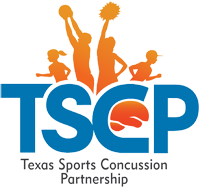What is ImPact?
ImPact, which is short for Immediate Post-Concussion Assessment and Cognitive Testing, is a software program designed to assess and monitor symptoms of concussion. It is a computerized battery of tests that provides objective data to help physicians and other medical experts manage concussion treatment and help determine when an athlete may be ready to return to play.
The software was developed at the University of Pittsburgh Medical Center (UPMC) by neuropsychologists, neurologists, and other physicians. It has been used in high school athletics, as well as collegiate and professional sports.
It takes about 30 minutes to take the ImPact test. It measures:
- Verbal and Visual Memory
- Attention/concentration
- Speed of thinking
- Reaction time
When should athletes take ImPact?
Results can be used as a benchmark if taken at pre-injury baseline, and to assess and track symptoms from concussion through recovery. The recommendation is to:
- Have athletes take the test to use as a baseline prior to the sports season.
- If an athlete experiences a concussion during the season, a team physician or other medical expert should evaluate him/her. Within 1-3 days, the athlete should take another ImPact test – before returning to play, as part of the overall concussion management program. These results can be compared with average scores obtained by uninjured groups as well as the athlete’s own baseline in order to give healthcare providers additional objective information regarding the patient’s symptoms and cognitive functioning.
- ImPACT results should be interpreted by a qualified neuropsychologist or appropriately trained healthcare professional.
Is ImPact a definitive evaluation tool? What are the pros and cons?
No, ImPACT is not definitive. It is designed to provide an additional piece of information regarding an individual’s cognitive functioning following concussion that can be used by the concussion treatment team in conjunction with other information (e.g. symptom assessment, clinical examination, balance testing) to guide treatment.
Pros:
- ImPACT is relatively brief (20-30 min), inexpensive, and widely available.
- It can be administered individually or in small groups (<6) with adequate supervision by an appropriately trained healthcare provider.
- Research supports the general sensitivity of ImPACT to the effects of concussion, and it provides an additional objective metric of post-concussion symptoms.
- Availability of baseline or pre-injury test results is useful to assess individual change in scores over time. Test results are presented in a user-friendly format.
Cons:
- ImPACT is widely available and online training or “certification” for its use is very basic.
Interpretation should only be done by a neuropsychologist or other well- trained healthcare provider who has a background in computerized neuropsychological test interpretation. - ImPACT requires good effort on behalf of the patient, and as such, results may be rendered invalid in cases of inadequate effort.
- ImPACT can be sensitive to a variety of conditions that may affect cognitive functioning besides concussion (e.g. ADHD, medication effects, lack of sleep, or other neuropsychiatric disorders)
- ImPACT provides easily readable printouts that depict performance across various types of cognitive tasks (e.g. attention, memory, etc). While this is useful, information can be misinterpreted in unqualified hands, as various factors noted above can influence results.
- Whereas alternate forms are available for test-retest situations, not all of the subtests are equivalent, which may result in variability in scores over time.
- ImPACT provides only a brief screening assessment of a few aspects of cognitive function, and does not take the place of a more detailed neuropsychological evaluation that may or may not be needed to provide a full assessment of an injured individual.

Leave a Reply